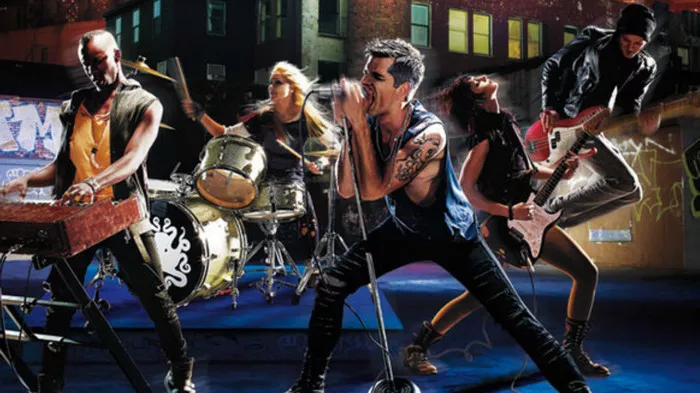In the landscape of music history, certain genres stand out as emblematic of particular eras, encapsulating the zeitgeist and spirit of their time. Among these, 90s pop punk emerges as a vibrant and influential movement that not only left an indelible mark on the music scene of its era but continues to resonate with audiences today. With its catchy melodies, energetic performances, and relatable lyrics, 90s pop punk captured the hearts of a generation and laid the groundwork for the punk revival that followed.
The Rise of 90s Pop Punk: A Cultural Phenomenon
The roots of 90s pop punk can be traced back to the late 1970s and early 1980s, with the emergence of bands like The Ramones, The Clash, and The Buzzcocks. These pioneering acts combined the raw energy of punk rock with pop sensibilities, paving the way for a new wave of bands to emerge in the following decades.
However, it was in the 1990s that pop punk truly came into its own as a mainstream phenomenon. Bands like Green Day, blink-182, and The Offspring burst onto the scene with infectious hooks, anthemic choruses, and a rebellious attitude that spoke directly to disaffected youth. Songs like Green Day’s “Basket Case,” blink-182’s “All the Small Things,” and The Offspring’s “Self Esteem” became instant classics, dominating the airwaves and MTV alike.
At the heart of 90s pop punk was a sense of authenticity and DIY ethos. Bands embraced a lo-fi aesthetic, eschewing polished production in favor of a raw, unfiltered sound that resonated with audiences. Lyrics often dealt with themes of alienation, rebellion, and youthful angst, reflecting the experiences and struggles of a generation coming of age in an uncertain world.
The Cultural Impact of 90s Pop Punk
Beyond its musical influence, 90s pop punk had a profound impact on popular culture at large. Its fashion sense, characterized by skinny jeans, band t-shirts, and studded belts, became emblematic of the era and continues to influence fashion trends today. Moreover, the DIY ethic of pop punk inspired countless young people to pick up instruments and start their own bands, fostering a vibrant underground scene that thrived outside of mainstream media attention.
The popularity of 90s pop punk also coincided with the rise of the internet, enabling bands to connect with fans in new and innovative ways. Online forums, fan sites, and early social media platforms provided a platform for fans to discuss music, share bootleg recordings, and organize grassroots movements, further fueling the popularity of the genre.
Furthermore, 90s pop punk played a significant role in shaping the cultural landscape of the era. Its emphasis on individualism, anti-authoritarianism, and rebellion against societal norms resonated with a generation disillusioned by the political and social climate of the time. Bands like Green Day and blink-182 became symbols of countercultural resistance, inspiring fans to question authority and challenge the status quo.
The Legacy of 90s Pop Punk: Enduring Influence and Evolution
While the heyday of 90s pop punk may have passed, its legacy continues to reverberate throughout the music industry and popular culture. Many of the bands that emerged during this era have enjoyed long and successful careers, evolving their sound while staying true to their punk roots. Green Day, for example, has transitioned from punk upstarts to stadium rockers without losing their edge, while blink-182 has continued to release chart-topping albums decades after their breakthrough success.
Moreover, the influence of 90s pop punk can be heard in the music of countless contemporary artists across genres. Bands like Paramore, Fall Out Boy, and All Time Low have all cited 90s pop punk as a major influence on their sound, blending punk energy with pop hooks to create music that resonates with a new generation of listeners.
Beyond its musical influence, 90s pop punk continues to inspire a sense of community and camaraderie among fans. The ethos of inclusivity and acceptance that defined the scene has endured, with fans coming together to support each other and celebrate their shared love of music. Festivals like Warped Tour, which served as a mecca for pop punk fans throughout the 90s and 2000s, may have come to an end, but the spirit of camaraderie and DIY culture lives on through smaller-scale events and online communities.
Conclusion
In conclusion, 90s pop punk remains a cultural touchstone that continues to resonate with audiences today. Its infectious melodies, rebellious spirit, and DIY ethic captured the hearts of a generation and left an indelible mark on the music landscape. As we look back on the legacy of 90s pop punk, it’s clear that its influence extends far beyond the confines of the music industry, shaping fashion trends, cultural attitudes, and the lives of countless fans around the world. And while the bands may have grown older and the scene may have evolved, the spirit of 90s pop punk lives on, inspiring new generations to pick up guitars, start bands, and embrace the power of music to effect change.

